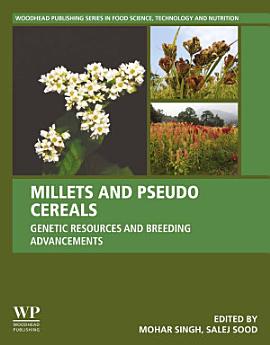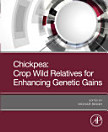Millets and Pseudo Cereals: Genetic Resources and Breeding Advancements
About this ebook
About the author
Dr Mohar Singh currently works as Principal Scientist (Plant Genetic Resources) at ICAR- National Bureau of Plant Genetic Resources Regional Station, Shimla India. He received his PhD degree in Plant Breeding from Himachal Pradesh Agricultural University Palampur, India followed by DSc from Himachal Pradesh University Shimla India. He is working on genetic and genomic resources of pulses, pseudo cereals and cereals including their crop wild relatives and landraces foe diversity analysis using next generation technologies, which resulted into identification of useful traits against nutritional and major biotic and abiotic stresses including agronomic improvement related characters, some which have been introgressed into the cultivated backgrounds for diversification of cultivated gene pool. He has published more than 120 research papers in journals of national and international repute and also holds three textbooks and eight edited books to his credit published by Elsevier Insight, Academic Press and Springer, among others.
Dr Salej Sood has made significant contributions in the genetic improvement of small millets and pseudo-cereals through conventional and molecular breeding approaches for the past 9 years. In finger millet he has developed six early and medium maturing, blast resistant high yielding varieties for all finger millet growing states of the country. He characterized the global finger millet and barnyard millet germplasm for agronomic and nutritional traits and registered one genetic stock with high calcium content. He identified new SSRs through cross-transferability studies for genetic diversity and association mapping in both finger millet and barnyard millet. He has identified putative SSRs governing blast resistance in finger millet for the first time. Through genotyping by sequencing of finger millet diverse collection, he for the first time identified SNPs linked to grain yield and its components, calcium content and protein content. He worked in several DST and ICAR funded projects for genetic improvement of small millets. He has also contributed in the potato breeding programme through marker assisted selection of parental lines and selection of hybrids for multiple disease resistance. He is recipient of NAAS associateship 2019, Endeavour Research Fellowship 2018 and several Institutional and other research awards. He has published more than 60 research papers in peer reviewed high rating journals.






